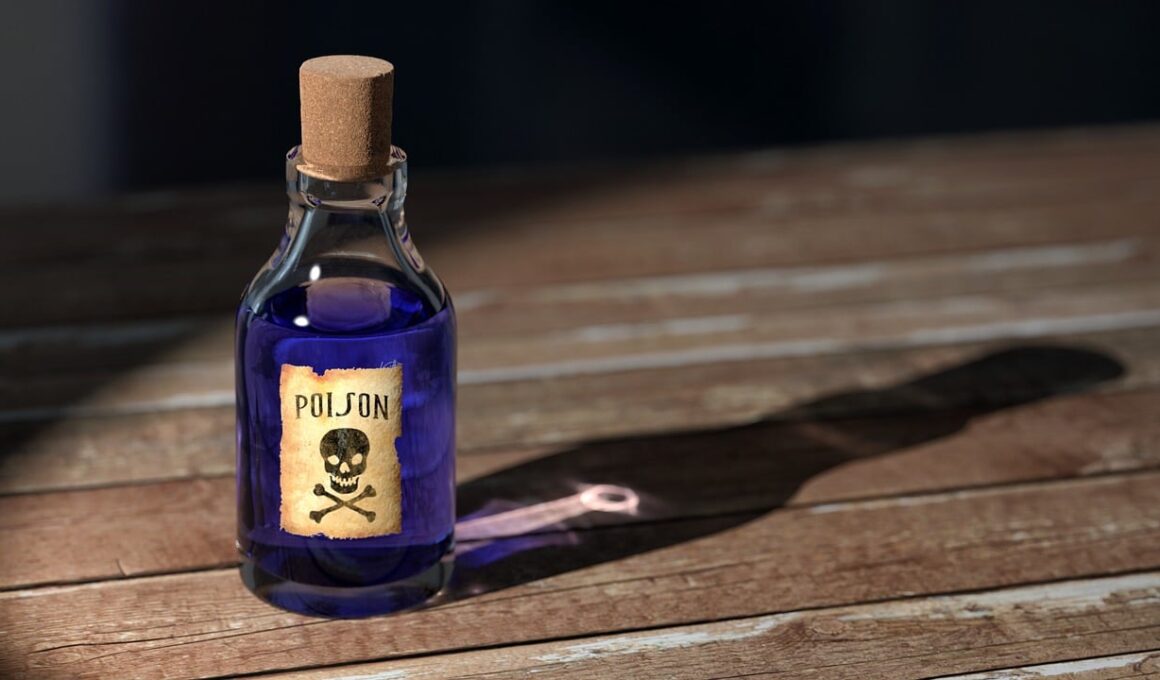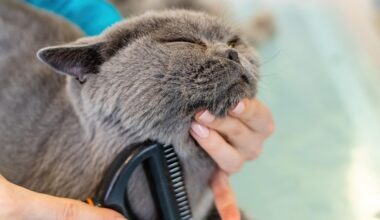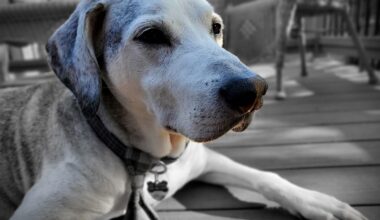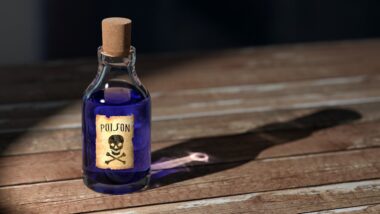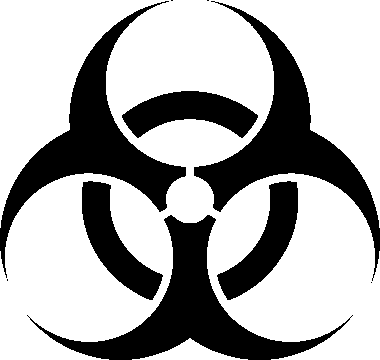Seasonal Poisons Affecting Dogs: Holiday Dangers and Prevention
The holiday season brings joy, but it also poses serious risks for our canine companions due to various seasonal poisons. One common hazard is chocolate, especially during festive gatherings when sweets are abundant. Dogs are often drawn to the enticing aroma of chocolate treats. However, consuming chocolate can lead to theobromine poisoning, which affects their heart and nervous system. Symptoms range from vomiting and diarrhea to seizures and even death in extreme cases. Thus, it’s vital to keep all chocolate and chocolate-containing products, including baked goods, far out of a dog’s reach. Another common danger is xylitol, found in many sugar-free products like gum and candies. This sweetener can cause insulin release, leading to hypoglycemia, liver failure, and death. Owners should beware of foods that may seem safe for humans but are toxic to dogs. Always check labels before giving your furry friend any human food during the holidays. Proper awareness and education on these hazards can help keep dogs safe and healthy during festivities while ensuring they enjoy the season with their families.
Another prevalent risk to dog health during the holidays is the festive greenery many families use for decoration. Plants such as poinsettias, holly, and mistletoe are toxic to dogs if ingested. Symptoms of poisoning can range from mild stomach upset to severe reactions, including vomiting and difficulty breathing. While these plants are a beautiful addition to holiday décor, it’s crucial to place them out of reach or consider alternatives that are pet-friendly. If a dog consumes any of these toxic plants, immediate veterinary attention is necessary. Early intervention can significantly improve outcomes for affected pets. Additionally, the holiday season often leads to the use of decorative candles and oils. While they create a delightful atmosphere, essential oils can be harmful when ingested by dogs. Scents like tea tree oil and eucalyptus can be particularly dangerous. Always ensure that any scented products are safely out of reach and used in moderation. Proper pet-proofing your home during the holiday season can prevent accidents and ensure a joyful experience for everyone. Knowing and avoiding these dangers can pave the way for fun celebrations with furry family members.
Holiday Foods to Avoid
During holidays, many pet owners indulge their dogs with special treats from the dinner table, but not all foods are safe. Certain common holiday foods like grapes, raisins, and onions can be highly toxic to dogs. Grapes and raisins can lead to kidney failure, while onions can cause anemia in dogs. The symptoms of poisoning may emerge through vomiting, diarrhea, or lethargy within hours of ingestion. Pet owners need to educate themselves about which holiday foods to keep away from their pets to avoid such dangerous situations. It is essential to stick to safe treats made specifically for dogs; many brands cater to festive occasions. The temptation to sneak table scraps can be hard to resist, but the consequences can be severe. Instead of sharing potentially harmful human food, consider whipping up dog-safe holiday treats using wholesome ingredients. Internet resources abound for recipes that incorporate items like pumpkin and peanut butter, ensuring dogs stay included in holiday festivities without risking their health. Sharing time with dogs should come with awareness and responsibility toward their wellbeing and safety this holiday season.
The holiday spirit often includes festive gatherings, but these events can present additional risks. With numerous guests and a change in routine, dogs may become stressed or anxious. This anxiety can lead some dogs to seek refuge in areas they shouldn’t, potentially exposing themselves to toxic substances. It’s essential to keep an eye on pets during these gatherings, ensuring they don’t have access to hazardous items like alcohol, which can be toxic even in small amounts. In addition to alcohol, holiday decorations such as tinsel and glass ornaments pose risks as well. If ingested, tinsel can cause intestinal blockages, while glass can lead to severe injuries. Preparation is key to keeping dogs safe during these celebrations. Establish a designated area for your dog, equipped with toys and comfort items, to help alleviate stress. Furthermore, inform guests not to give table scraps or treats without consulting you first. Always maintain open communication with visitors about your dog’s dietary restrictions and safety. This proactive approach will create a safer environment for pet companions while enjoying the warmth of the holiday season.
Storing Holiday Decorations Safely
After the holiday festivities, decorations and items typically go into storage. However, it’s important to consider the implications of how you store these items. Many holiday decorations can pose a risk if they are not kept securely. For example, electrical cords for lights can be chewed on, leading to severe electrical shock if ingested. It is recommended to use cord protectors or tape to secure loose wires to the floor. Additionally, various ornaments and decorations may contain toxic substances or small parts that can be a choking hazard for dogs. Storage bins should be properly sealed and placed in areas that are inaccessible to pets. Pet owners should also remember to supervise their dogs during festive seasons, particularly when unpacking decorations. As dogs are often inquisitive, they might try to explore these stored items. Ensure that any hazards are clearly out of reach, and declutter areas where pets typically roam. It’s better to err on the side of caution and keep dogs safe from potential dangers as the holiday season comes to a close, protecting them throughout the entire experience.
Another preventative measure is to emphasize the importance of regular vet check-ups, especially prior to any holiday seasons. Ensuring dogs are healthy and up-to-date on vaccinations can significantly decrease the risk of complications from potential poisoning. Very often, pet owners might overlook regular health checks amid preparations for festivities, yet this can lead to missing underlying health issues. Remember to consult with a veterinarian regarding any new treats or activities your dog may experience during the holidays. A professional opinion can help highlight the safety profile of novel food items and events. In addition to physical health, addressing mental wellbeing is crucial; spend quality time bonding with your pet throughout the holiday rush. Whether it’s engaging in play or walks, mental stimulation can prevent anxiety and keep dogs grounded during chaotic periods. Enhancing their physical activity likewise lowers the risk of boredom-driven destructive behavior. Ultimately, being proactive is key in ensuring dogs remain safe and healthy so they can participate joyfully in holiday festivities throughout the year. Prepare for encounters with awareness and love for your canine companions.
Final Thoughts on Holiday Safety
In conclusion, while the holiday season is a time of joy and celebration, it also requires vigilance and responsibility when it comes to pet safety. Every dog owner should be aware of the potential hazards associated with this time of year. Taking the necessary precautions will ensure that dogs are not exposed to poisonous substances or stressful situations. Remember to keep harmful foods, toxic plants, and decorations out of their reach. Evaluation of the household environment should be ongoing, particularly during busy gatherings. Engaging with their pets and including them in safe and enjoyable activities can make the season memorable for everyone. Moreover, always have the contact details for a local veterinarian on hand in case of emergencies. Canine wellness during the holidays can be achieved through education, awareness, and practical steps. Celebrate responsibly by being mindful of your dog’s safety and health. The key to ensuring a joyous holiday season lies not just in festivities, but also in the diligence and love we offer our beloved four-legged family members. Prioritize their health so we can all cherish these beautiful moments together.
